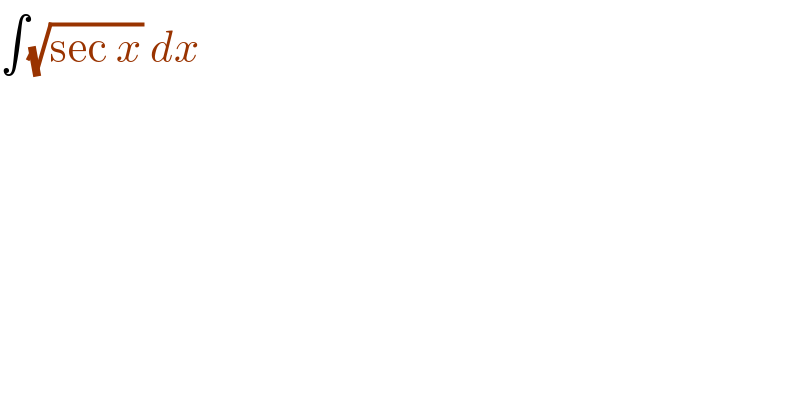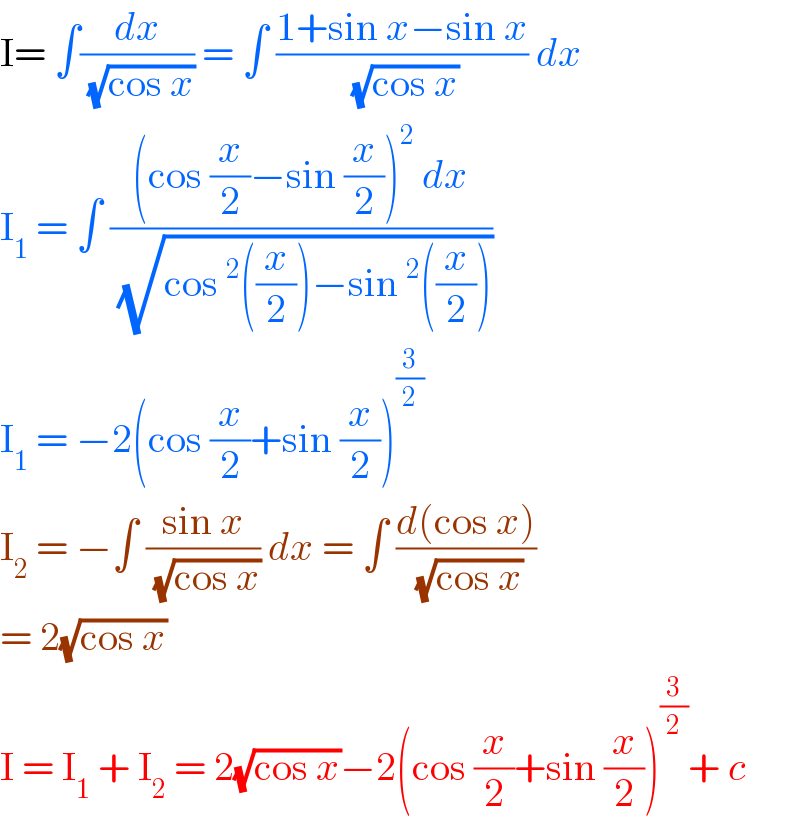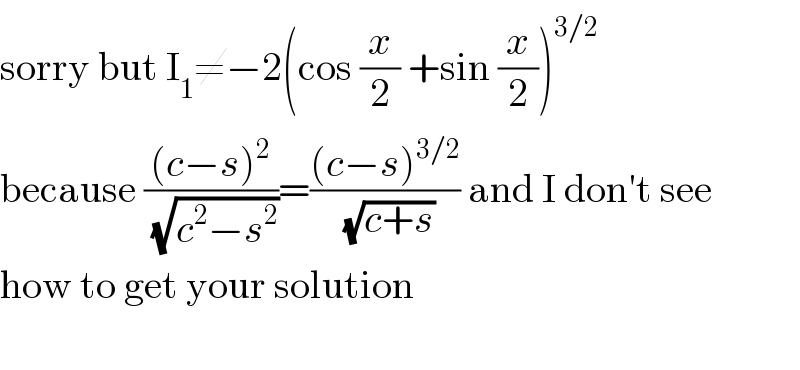
Question and Answers Forum
Question Number 101272 by bemath last updated on 01/Jul/20

Commented by john santu last updated on 01/Jul/20

Commented by MJS last updated on 01/Jul/20

Answered by mathmax by abdo last updated on 01/Jul/20

Commented by MJS last updated on 01/Jul/20

